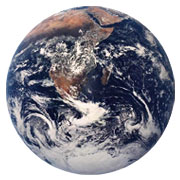
The White House has demanded urgent action on climate change amid the release of a report that spells out the looming threats to America and the global population.
More than 300 experts, led by a 60-member federal advisory committee, worked for several years to create the latest National Climate Assessment. The previous version was published five years ago.
The report highlights tangible climate change seen by members of various industries in recent years. Corn producers, oyster growers, water managers and coastal planners are among those who’ve witnessed climate changes that transcend recent trends and experiences.

Longer, Hotter Summers
Summers are hotter and lasting longer, while winters are usually shorter and somewhat warmer as well, the report indicates. Rainfall is heavier. Americans are witnessing changes in flora and fauna in their neighborhoods, along with varying lengths and severity of seasonal allergies.
Wildfires on the West Coast occur over a longer period of the year, flooding is increasing amid rising sea levels, and summer sea ice is receding in Alaska. 2012 was the hottest year in recorded history in the continental U.S.
“Climate change is not just a problem for the future — it’s already here,” said Philip Mote, director of the Oregon Climate Change Research Institute and a professor in the College of Earth, Ocean, and Atmospheric Sciences at Oregon State University.
“Many Americans are already feeling the effects of increases in certain types of extreme weather and sea level rise that are fueled by climate change,” he told TechNewsWorld, “and America has important opportunities to reduce emissions of heat-trapping gases and prepare for the effects of climate change.”
Fossil Fuels
Earth is warming due to human factors like fossil fuel burning, forest clearing, and increased methane and nitrous oxide emissions, shows evidence laid out in the report.
The planet might have cooled slightly over the last half-century if not for human interference, it suggests. Current predictions indicate temperatures in the continental U.S. may rise 2-4 degrees Fahrenheit over the next few decades.
The report details 12 key findings, determined through a combination of research and observations. Beyond the most immediate results of climate change, such as the decline of Arctic ice, the report touches on issues including an increase in extreme weather events; broad impacts such as the collapse of the coral reef ecosystem; human health effects like degrading air quality and increasingly prevalent insect-borne diseases; and effects on infrastructures designed with the existing climate in mind, rather than one that will rapidly change over the coming decades.
Water Supply
Water supplies are likely to be affected, the report says, in terms of both quality and reliability. Agricultural disruptions are increasing and are estimated to become more severe this century, due to factors like more dry days and hot nights.
What’s needed is a wider range of potential responses to combat climate change, the report suggests, since current efforts to adapt to and mitigate it are not good enough to combat the consequences.
The report lays out barriers to implementation of new measures, such as a lack of funding, legal and policy roadblocks, and the challenge of anticipating climate change at the local level. That said, it suggests efforts to battle climate change can be rolled into current decision-making processes, because adaptation can help achieve other goals like quality-of-life improvements.
Proactive Efforts
Being proactive in challenging the effects of climate change, rather than reactive, could reduce harm from effects like rising tides and extreme weather events, the report suggests.
Thirteen federal entities are participating in the U.S. Global Change Research Program. Representatives from the agencies — including NASA, the Department of Agriculture, the Department of Energy, the National Science Foundation, and the Smithsonian Institution — make up the Subcommittee on Global Change Research of the Committee on Environment and Natural Resources within the National Science and Technology Council.
“The report is important, because it brings the climate change issue home to the U.S., makes it clear that climate change is already having important impacts on the U.S., and that impacts will get much worse and more costly if climate change is not curtailed,” Jonathan Overpeck, codirector of the Institute of the Environment at the University of Arizona, told TechNewsWorld. “The countries of the world will not take action until the U.S. does, so the White House call for action is critical for galvanizing worldwide efforts to slow climate change.”
‘True to His Word’
“The president, so far, has been true to his word,” said Michael Mann, distinguished professor of meteorology at Penn State University and director of the Penn State Earth System Science Center.
“He promised to act immediately to do something about climate change in his state of the union address, and the actions he and his administration have taken so far seem to confirm that acting on climate change will be a focal point of Obama’s second term. This report demonstrates just why it is so important to act now,” Mann told TechNewsWorld.
“I hope that the message is starting to get through,” he added.
“By framing climate change as a problem that isn’t distant from us in either space or time, but impacting us negatively — now — in the form of more devastating extreme weather events, more widespread heat waves and drought, and in so many other ways, I think this latest report has a better chance of awakening the public to the nature of the threat we face — and to the fact that there is still time to act to avoid a catastrophe,” Mann said.
“Action now is ever more urgent than it once was,” he emphasized. “This has to be part of the message that gets through — to the public and to policy makers — now.”





















































